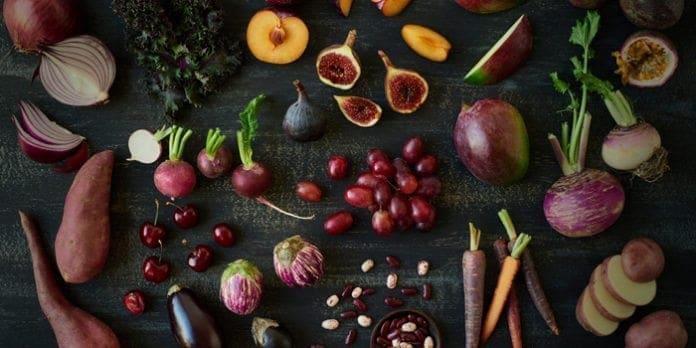February is Heart Health Month and a good time to think about protecting your own precious heart. Although heart disease is the Number 1 killer of women—more than all cancers combined—it’s largely preventable. Start by learning the risk factors for heart disease and knowing your family health history. Put your knowledge to work by going in for regular check-ups and working with your physician to manage your health.
Eat at least two servings every day of delicious and colorful fruits and vegetables that are high in powerful nutrients to boost your defenses against heart disease. Every extra serving above that minimum slightly reduces your chances of dying from heart disease.
Eat your vegetables raw, steamed, blanched or roasted until just crisp-tender and drizzle on a dollop of olive oil. Avoid deep-frying veggies, which breaks down their vitamins and nutrients.
Look for these choices at the farmer’s market and your supermarket produce section:
Berries
Women in their 30s, 40s and 50s can reduce their risk of heart attack by eating three or more servings each week, says a recent study.
Corn
The lutein and zeaxanthin in corn keep arteries from thickening, the main cause of heart disease.
Dates
Dates may help reduce triglycerides in the blood. Those fats are linked to heart attacks and strokes. Dates, which rank low on the glycemic index, don’t spike your blood sugar although they contain a lot of natural sugar. Dates also help manage blood pressure because they are high in potassium.
Garlic
Garlic’s distinctive aroma is the product of the little bulb’s sulfur content, which releases hydrogen sulfide. The gas controls blood pressure by relaxing blood vessels. Crush garlic 10 minutes before using in your recipe to trigger garlic’s health-promoting enzymes.
Kale
Kale is loaded with heart-healthy antioxidants.
Mushrooms
A much higher rate of heart disease goes along with low levels of Vitamin D. Mushrooms are one of the few foods that provide the precious vitamin. If the container does not say the mushrooms are vitamin D-enhanced or vitamin D-fortified, increase their D levels by setting them in the sun for 30 minutes.
Oranges
The white pith and peel of each orange contains 3 grams of fiber and pectin, which can prevent absorption of “bad” LDL cholesterol into the gut.
Orange Bell Peppers
These babies abound with the mineral potassium, which regulates blood pressure.
Peanut Butter
One of the best heart-healthy foods is peanut butter even though it’s high in fat. PB’s fat is the kind that nutritionists love: mostly the unsaturated—or healthy—kind. Regularly munching on nuts or peanut butter lowers your chances of developing heart disease or diabetes.
Pineapple
In the fight against heart-damaging free radicals, pineapple is a warrior. One cup of pineapple contains more than 100 percent of the body’s daily vitamin C needs.
Spinach
Spinach boosts heart function and lowers blood pressure.
Tomatoes and Watermelon
Join the group of people who have the most lycopene in their bloodstream. A study found they are 55 percent less likely to have a stroke than folks with the least lycopene. Watermelon and tomatoes are nature’s chief sources of this powerful antioxidant.
Read more: Woman’s Day Heart Health Guide






